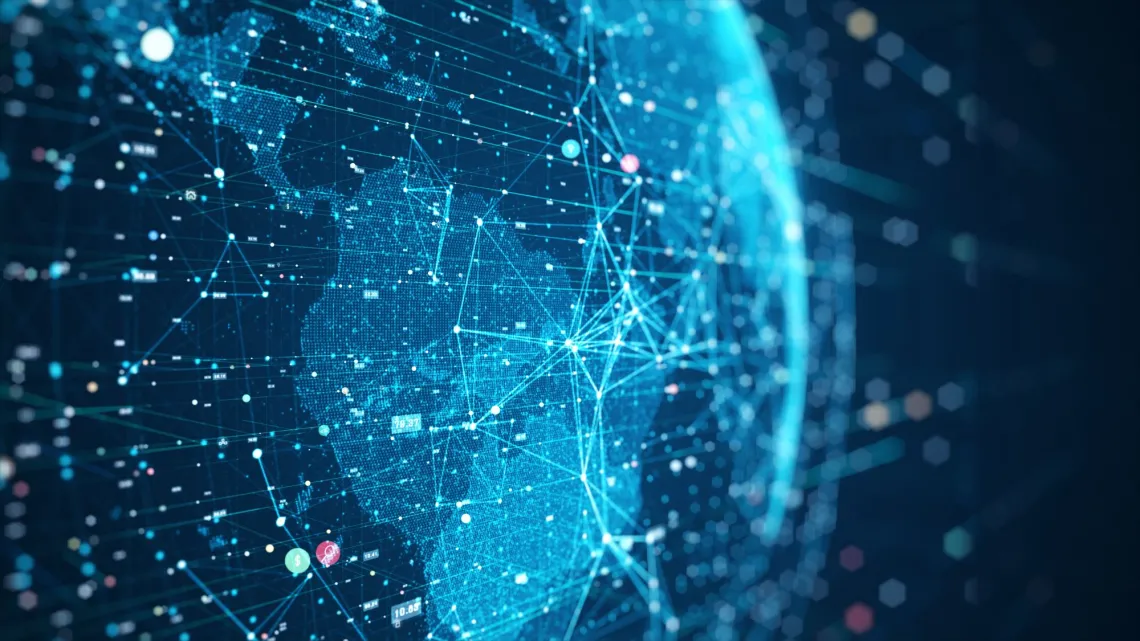University of Arizona sociologist receives NSF CAREER award to study the “science of science”
Sociologist Charles Gomez is assessing scientific inequity across the globe, how international tensions influence AI research and the implications for international politics.

Artificial intelligence (AI) is at the forefront of scientific achievement and political discourse. Charles Gomez, an assistant professor of sociology at the University of Arizona, has received a $484,000 National Science Foundation (NSF) CAREER award to study how international politics shapes academic research of AI across the globe and what it means for scientific inequity.
Gomez will conduct a three-part, multi-method study to demonstrate how international tensions affect AI research and the impact on scientific research globally. The study, in the interdisciplinary field of the “science of science,” will result in a meta-analysis of equity within the scientific landscape.
“Science is a social institution like any other. It’s the way we rationally try to understand the natural and human world. It deserves research in and of itself,” Gomez said. “That’s the goal of this meta-analysis and why the ‘science of science’ is becoming more prominent.”
Viewing science as a social institution allows researchers to study the methods by which we share, protect, and think about scientific research. The so-called “science of science” is integral to combating scientific inequity across the world.
“There is a stark inequality when it comes to scientific research and academia,” Gomez said. “That’s what my research centers. What does it mean that only a few countries produce the vast amount of research and how can we introduce equity into academia?”
The first part of Gomez’s study will involve interviewing 250 scientists across various fields to illustrate how national and international biases manifest in individual researchers, collaborative teams, and projects. This portion of the study will uncover any patterns across the interviews to further our understanding of political biases in scientific research.
The second part of his study will use natural language processing (NLP), a machine-learning technology that gives computers the ability to interpret and comprehend text as data from a variety of sources, specifically from published scientific papers. The technology will be used to comb through published academic research on AI and identify whether any distinct national interests manifest themselves in the research.
“The real concern with AI is its security and surveillance capabilities, especially when it comes to the capabilities of drone warfare. Tensions are increasing across the world and nations are tripping over themselves for AI superiority,” Gomez said. “That puts the role of the scientist in an interesting position.”
The final part of Gomez’s study will use survey experiments to measure the degree to which national agendas influence academic writings, evaluating potential biases in research from different countries, specifically when it comes to AI, and how one’s national identity influences the adoption of research from other countries.
“Politicians and scientists are two sides of the same coin,” Gomez said. “In an ideal world, scientists would be unbiased, objective, and nonpartisan, but this is not the case. Scientists are often used as the pawns and beneficiaries of international politics.”
Along with revealing how international tensions influence the development of AI, Gomez’s study will uncover the extent to which nations trust, exclude, or are influenced by other nations in global research, deepening our understanding of equity and inclusion in academia.
As part of the grant, Gomez is launching his own research lab comprised of graduate students and sociologists from across the university. The lab will use findings from Gomez’s study to write a number of white papers and create a course for U of A undergraduate students. Gomez hopes to write a book on this research as well.
“The impact of scientific research on modern society is often underappreciated. Our world centers science. It influences our economies and our politics,” Gomez said, “Looking at the intricacies of science as an institution is paramount to understanding global relations.”

